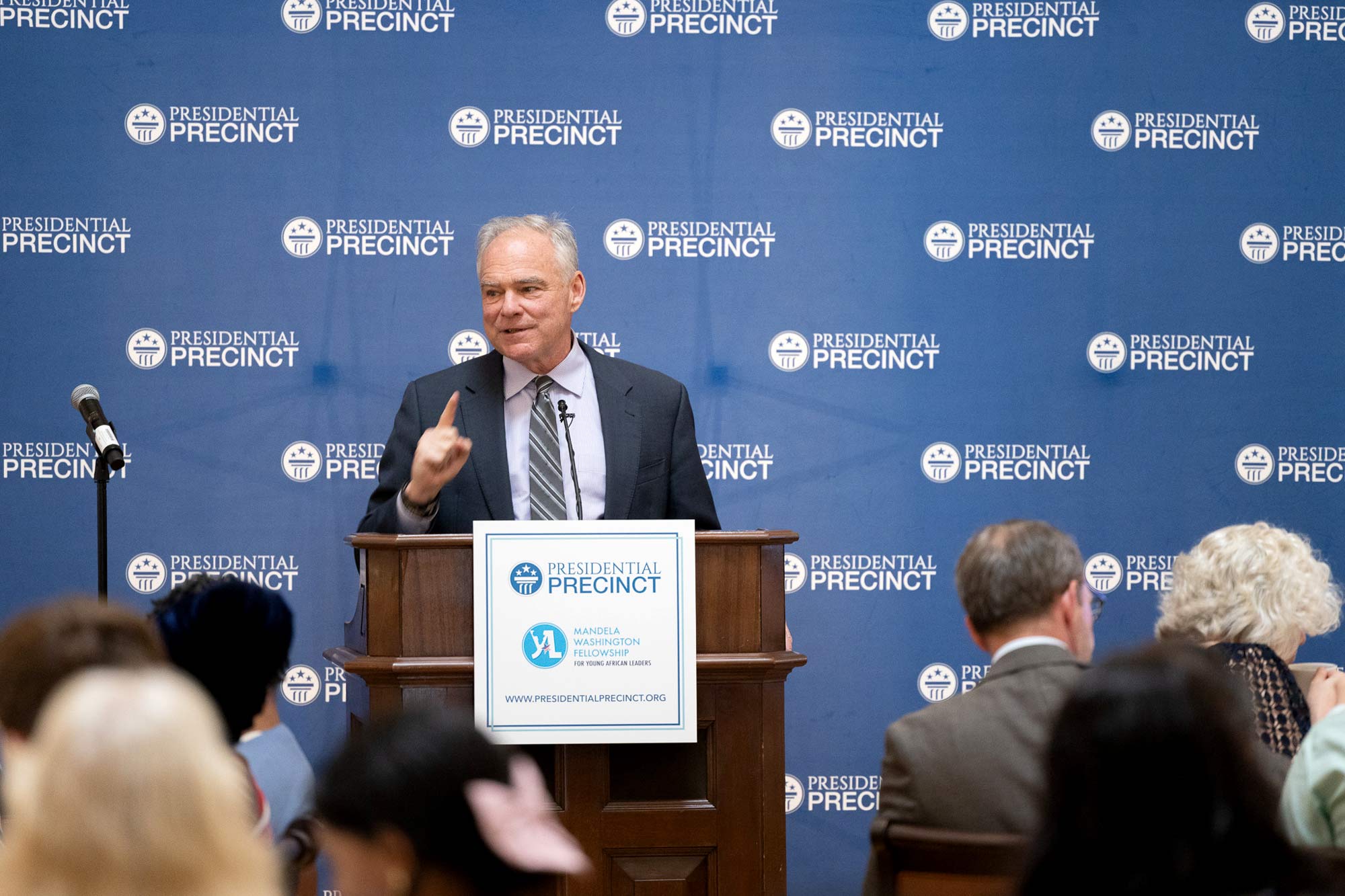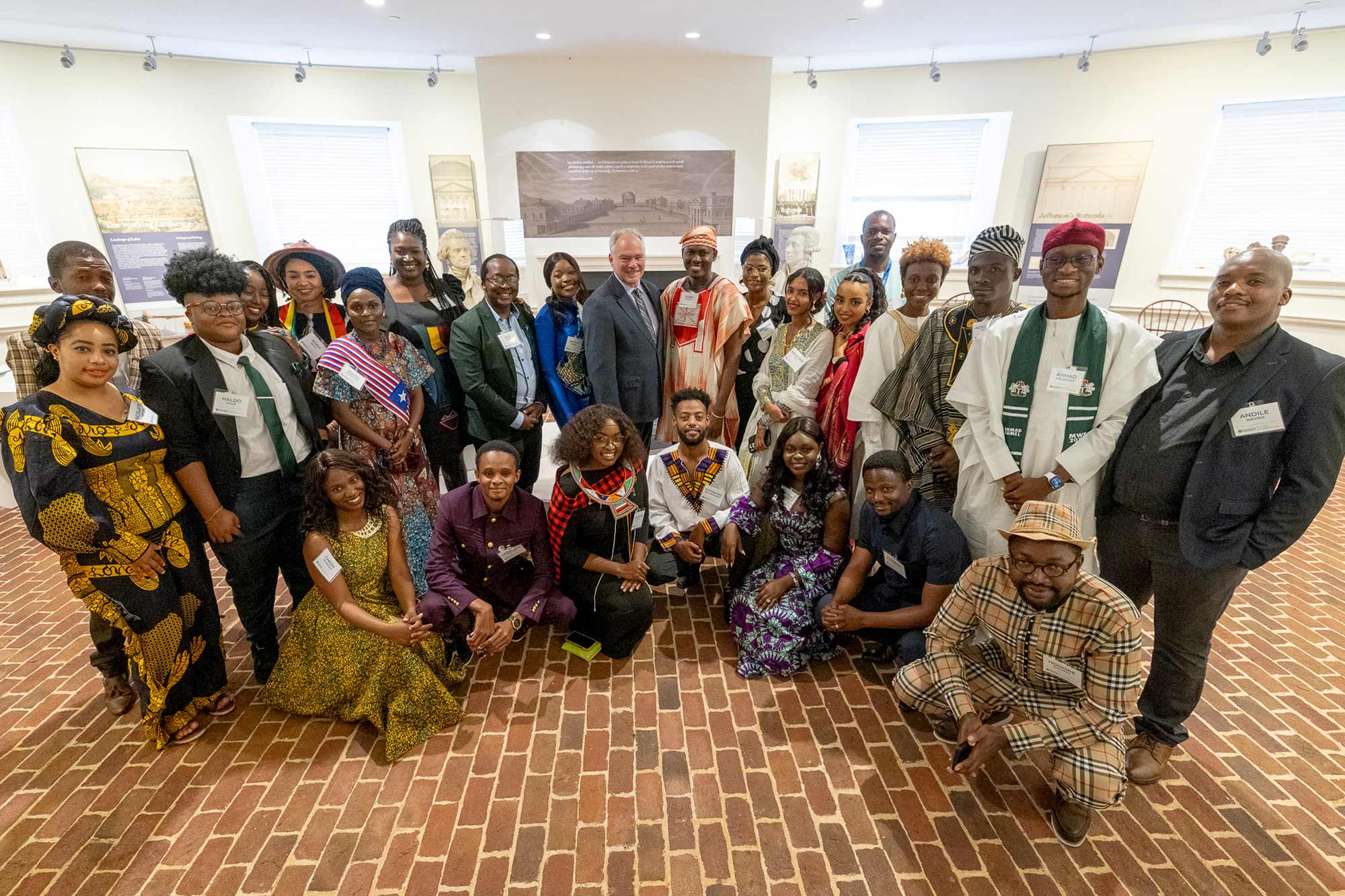UVA Today sought to speak with Kaine, a Democrat and 2016 vice presidential candidate, about his views on the state of democracy in the United States.
Q. The past few days must have felt like whiplash for Democrats. Can you put into perspective how frenetic and unusual this has been?
A. “Frenetic” and “unusual” are good words. Because I am in my own campaign, I’ve been doing intense events around Virginia. Since July 1, think I’ve done at least 11 days of full-time events, and that has really put me up close and personal with how people are feeling. There was just significant anxiety, stress, concern and worry. In any event I was walking into, that was the emotion.
I was in Hampton Roads on (July 21), doing events there with my staff, when the news broke that President Biden was not going to run for another term and was endorsing Kamala Harris and it was just an emotional sea change from … division and anxiety to unity and energy.
Q. Is all this – calls for Biden to step down, his reticence to do that, and then his change of mind – a sign that democracy is working, or that something in the process is broken?
A. I think it’s a sign that it’s working. (Biden’s) the most powerful person in the world. You’ve done a really good job … and you want to continue to do it. To make a decision of that magnitude in three weeks is actually kind of remarkably swift. I think it is a sign that democracy is working.
Q. You’ve spent a lot of time at UVA, a public university that prides itself on graduating citizen-leaders equipped to serve the public. In these polarized times, what do you say to students about a career in politics? Is it something interested students should still pursue?
A. Yes, I do believe that, because it is a very effective way to improve society. There are other effective ways to improve society.
UVA has a great track record of graduates going into the foreign service. It has a great track record of graduates going into the Peace Corps. There’s a lot of different ways to serve.
Q. What can the electorate do right now to stay engaged and have their voices heard?
A. Obviously, in a presidential election year, the most important thing to do is learn about the candidates, to vote and encourage others to. Even in a presidential race, the number of people who are eligible to vote and chose not to is shockingly high. It’s in the double-digit millions of people who are eligible to vote, in a race that will have a dramatic impact all around the world. (The figure of people who did not vote in the 2020 election was estimated at 80 million.)











